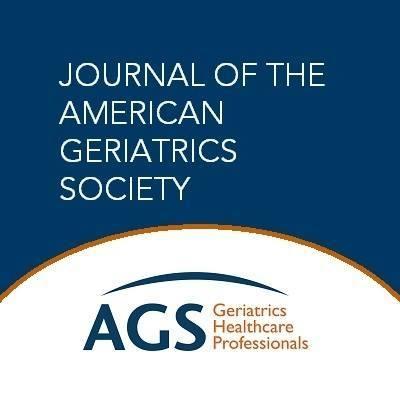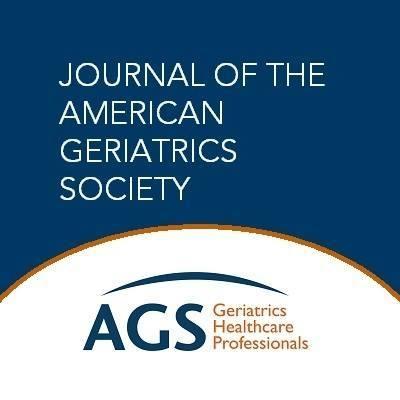
Credit: (C) 2018, Journal of the American Geriatrics Society
In a newly published collection of research reports and essays , more than 20 experts in aging are looking to the future of science, professional education, clinical practice, and public policy to address two of America's fastest growing health concerns: Dementia and mental health in late life. Across 10 articles compiled as a supplement to the Journal of the American Geriatrics Society (JAGS) , field leaders in geriatrics, dementia, and mental health have traced the trajectory of everything from our knowledge of neurological systems contributing to dementia to the development of new interprofessional approaches to teaching and managing late life problems in mental health. In so doing, they hope to chart a course forward for bridging the gap between science and clinical practice, which could transform the prevention and treatment of dementia and mental illness for us all as we age.
"As longer lives become a reality for more and more Americans, so too do concerns about conditions like Alzheimer's disease and other dementias," said Christine Bradway, PhD, CRNP, FAAN, AGSF, Associate Professor of Gerontological Nursing at the School of Nursing, University of Pennsylvania, and Guest Editor for the JAGS supplement. "For those who worry about the impact of increased longevity on memory and mental health, it's important to see forward-facing progress that can give us the science and social supports we need to continue contributing to our communities for as long as possible," added Caroline E. Stephens, PhD, RN, GNP, Associate Professor at the UCSF School of Nursing who led the concept, design, and implementation for the supplement.
Compiled following a two-day summit convened by the National Hartford Center of Gerontological Nursing Excellence and supported by the National Institute on Aging, the new JAGS supplement takes stock of dementia and mental health research and care in its current state, identifies public and professional needs to accelerate change, and reveals promising avenues for moving forward in science, practice, health professions training, and public policy.
The series begins with a paper exploring dementia-associated apathy research (studies that explore how apathy, or a general lack of enthusiasm/concern, is tied to dementia), accompanied by commentary that points to the critical need for enhanced research using novel clinical trial designs and data-sharing platforms.
A second research report and corresponding commentary describe the role of the neural system (the complex connections linking your brain to the rest of your body) in late-life depression and how knowledge of its effects can better shape treatment options and health outcomes.
A third set of papers examines why health systems may be slow to adopt new and promising models of dementia and late-life mental health care and proposes solutions. A final research report and commentary included in the series reimagine collaboration in training multiple healthcare professionals to meet the needs of older Americans, more and more of whom are likely to live with dementia and/or mental health problems as our population continues to age.
The supplement concludes with an outline of critical policy priorities for research, reimbursement, models of care, and clinician/researcher training. Highlighting examples from the Health and Aging Policy Fellows Program–an initiative supported by The Atlantic Philanthropies and the John A. Hartford Foundation to help connect professionals in aging to the legislative processes that make their work possible–this final paper illustrates the essential roles health professionals and academic researchers must play in translating science into social and healthcare systems equipped to support our care, especially as more Americans manage dementia and mental health conditions.
Already impacting millions of Americans 65-years-old and older, forms of "dementia" (including Alzheimer's disease) are characterized by declining mental abilities and deteriorating memory skills severe enough to interfere with daily life. Dementia is also one of several mental health concerns we may face as we age. One in five older adults currently experience mental illnesses like depression, anxiety, or addictive disorders, for example, and the numbers of people affected with these conditions will likely continue to grow. Sadly, many individuals live with undiagnosed or untreated dementia or mental health disorders, which can take an added toll on physical well-being while also increasing the risk for emergency department visits, placement in a nursing home, and other health concerns. As the experts writing in JAGS observe, "Science has made much progress in increasing knowledge about dementia and mental health in later life," and this new anthology of research reports will do much to create "a solid theoretical base, clarity about meanings of mixed findings, and solutions to the challenges of conducting clinical trials, especially for nonpharmacological interventions [treatment/prevention options that do not involve the use of prescription medications]."
###
About the American Geriatrics Society
Founded in 1942, the American Geriatrics Society (AGS) is a nationwide, not-for-profit society of geriatrics healthcare professionals that has–for more than 75 years–worked to improve the health, independence, and quality of life of older people. Its nearly 6,000 members include geriatricians, geriatric nurses, social workers, family practitioners, physician assistants, pharmacists, and internists. The Society provides leadership to healthcare professionals, policymakers, and the public by implementing and advocating for programs in patient care, research, professional and public education, and public policy. For more information, visit AmericanGeriatrics.org.
About the Journal of the American Geriatrics Society
Included in more than 9,000 library collections around the world, the Journal of the American Geriatrics Society (JAGS) highlights emerging insights on principles of aging, approaches to older patients, geriatric syndromes, geriatric psychiatry, and geriatric diseases and disorders. First published in 1953, JAGS is now one of the oldest and most impactful publications on gerontology and geriatrics, according to ISI Journal Citation Reports®. Visit wileyonlinelibrary.com/journal/JGS for more details.
Media Contact
Daniel E Trucil
[email protected]
212-822-3589
@AmerGeriatrics
http://www.americangeriatrics.org/
Original Source
https://www.americangeriatrics.org/media-center/news/new-research-anthology-geriatric-experts-look-future-managing-dementia-and-mental http://dx.doi.org/10.1111/jgs.15271





